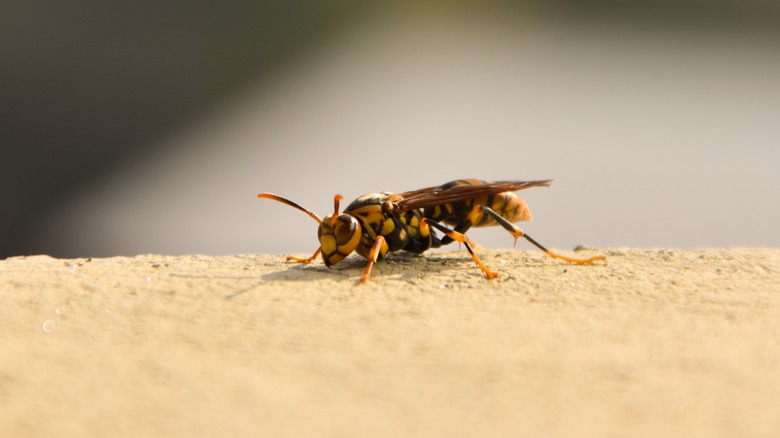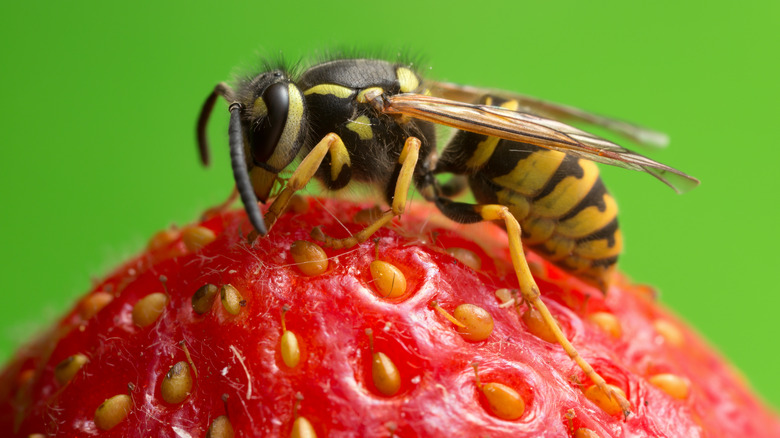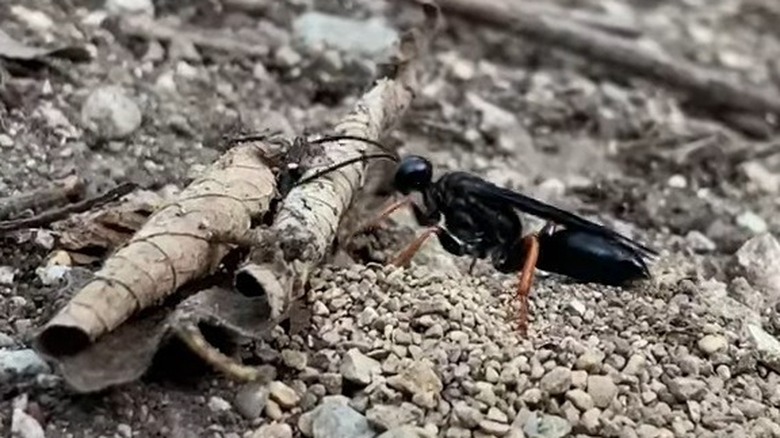The Difference Between Ground Wasps & Yellowjackets (And How To Deter Both)
If you notice stinging wasps flying around your home, you may want to remove them. Start looking for common places where wasps are building their nests, like underneath overhangs around your home or outbuildings. However, certain kinds of wasps create nests inside the ground, meaning you may need to search around your yard, too. Ground nests for these insects look like a small pile of dirt in a cone shape with a hole in the middle. The insects climb in and out of the hole. They go through a tunnel to reach the main portion of the nest underground.
Before you walk around and start searching for the source of these insects, you may want to try to figure out whether you're dealing with ground wasps or yellowjackets, as both of them build nests underground. Why is this important? Ground, or digger, wasps are not aggressive toward humans. Unless you provoke them, they're far less likely to sting compared to yellowjackets, which are known to sting multiple times in a row. They are extremely aggressive, and they may even chase a human to continue stinging. If you see yellowjackets in a ground nest, use more caution than you would with digger wasps.
Yellowjackets have a segmented body with an extremely small waist. The wings are longer than the body, and they have a bright yellow and black body. Often, ground wasps are primarily black. Some have orange on their bodies or legs, while others may have a blue sheen.
How to safely deter or treat yellowjackets
To try to get rid of yellowjackets that are already in your yard, you can undertake a few DIY treatment methods. However, because yellowjackets are willing to sting you multiple times, you'll want to use caution around them. Use general wasp sprays and powders to try to kill these insects. Because of the aggression of these insects, you may want to try to apply the treatment from a distance, such as by using a sprayer on an extension pole. You also could use a product that has a long-distance spray jet. Saturate the ground in the nest area. Treating the ground nest for yellowjackets can be a challenge, as the main nest may be several feet from the entrance hole, making it tough to saturate the entire area with spray.
You also could try removing the yellowjackets without using chemicals. Install an electric insect zapper near the ground colony, and the hum of the device should draw the insects, as they believe this represents a threat to the nest. Another option is to try to remove the items that make yellowjackets so attracted to your yard. Yellowjackets have an attraction to open garbage cans, for example, especially if sweet smells are in the garbage.
If you have a fear of being stung while trying to eliminate these insects on your own, you can call a professional exterminator. These pros will accurately identify these stringing insects and then determine the best means of eliminating them.
Should I try to remove ground wasps on my own?
Common aerosols and sprays that work on wasps should kill ground wasps. Aim the spray jet at the hole that indicates the nest in the ground. Saturate the area around the hole. You also can spray a ring on the ground around the nest in case any digger wasps crawl out, so the liquid chemicals will make contact with them.
If you prefer not to use sprays to try to eliminate the digger wasps, locate their nest holes in the ground. Then pour ammonia in the holes. Cover the holes with dirt to trap them inside with the ammonia. Another option is insecticide dust, which works well when you cannot find the exact hole for the ground wasps' nest. You can sprinkle the dust in the area where you suspect the nest exists. Any insect that makes contact with the dust will carry it into the nest.
Even if you find a digger wasp nest, you may simply want to leave it alone. They rarely sting humans and are good pollinating insects. They also feed on less desirable insects like grasshoppers and crickets. However, if you're worried about kids or pets stumbling into the ground nest and agitating the insects, you can try a DIY treatment, or you can call a pro. Because these ground wasps likely will return to the same place year after year to make a nest, you may want to call an exterminator to help you get rid of them for good.


